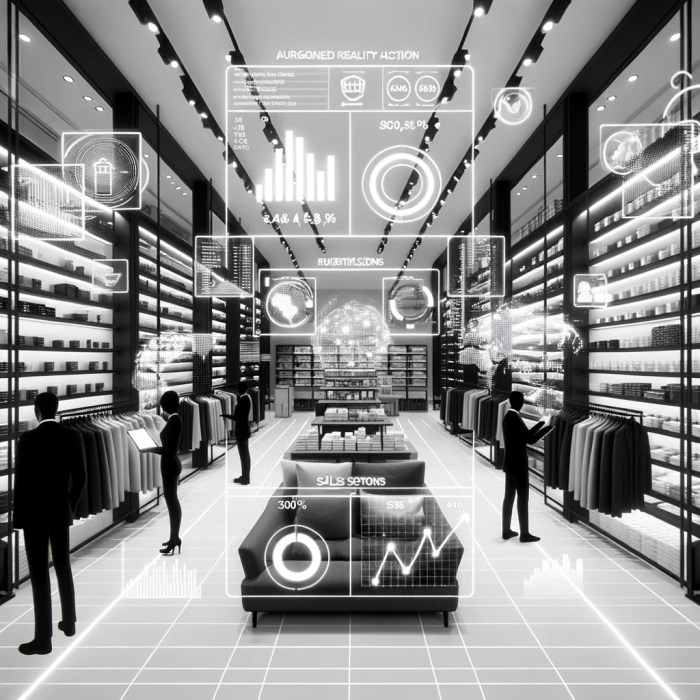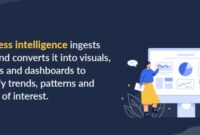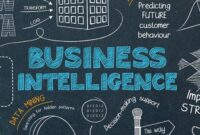In the fiercely competitive retail landscape, retail business intelligence (RBI) has emerged as a game-changer, empowering retailers with the data-driven insights they need to make informed decisions, optimize operations, and drive growth.
RBI leverages data from various sources, including sales transactions, customer behavior, and market trends, to provide retailers with a comprehensive view of their business.
By harnessing the power of data analysis and visualization, retailers can gain actionable insights into key performance indicators (KPIs), identify areas for improvement, and develop targeted strategies to meet the evolving needs of their customers.
Retail business intelligence involves collecting, analyzing, and interpreting data to gain insights into customer behavior, trends, and market opportunities.
By leveraging data warehousing and business intelligence solutions, retailers can centralize and manage their data, enabling them to make informed decisions, optimize operations, and improve customer experiences.
1. Overview of Retail Business Intelligence
Retail business intelligence (BI) is the process of collecting, analyzing, and visualizing data to improve decision-making in retail operations. By leveraging data-driven insights, retailers can gain a comprehensive understanding of their customers, optimize their operations, and increase profitability.
2. Key Components of Retail Business Intelligence

A retail BI system consists of three key components:
- Data collection: Gathering data from various sources, such as POS systems, loyalty programs, and social media.
- Data analysis: Using statistical and analytical techniques to identify trends, patterns, and insights in the data.
- Data visualization: Presenting data in visual formats, such as charts, graphs, and dashboards, to make insights easily understandable.
Data integration and data quality are crucial for ensuring the accuracy and reliability of the insights derived from BI systems.
3. Benefits of Retail Business Intelligence

Retail BI offers numerous benefits, including:
- Increased sales and profitability through improved customer targeting and personalized promotions.
- Enhanced customer satisfaction by understanding customer preferences and resolving issues proactively.
- Optimized inventory management, reducing stockouts and minimizing waste.
- Improved supply chain efficiency by identifying bottlenecks and optimizing logistics.
- Data-driven decision-making, reducing the reliance on gut instinct and improving strategic planning.
Last Recap: Retail Business Intelligence
As the retail industry continues to evolve, RBI will play an increasingly critical role in helping retailers navigate the complexities of the market.
By embracing data-driven decision-making and leveraging the latest technologies, retailers can unlock the full potential of RBI to gain a competitive edge, enhance customer experiences, and drive sustainable growth.
Retail business intelligence is a powerful tool that can help businesses make better decisions about their products, marketing, and operations.
By collecting and analyzing data from a variety of sources, businesses can gain a deep understanding of their customers’ needs and preferences.
This information can then be used to develop more effective marketing campaigns, improve product offerings, and optimize operations.
As a result, retail businesses can increase sales, improve customer satisfaction, and gain a competitive advantage. Just as Harvard Business Review emphasizes the importance of emotional intelligence in business leadership, retail business intelligence can provide the data-driven insights needed to make informed decisions that drive success.
FAQ Summary
What are the key components of a retail business intelligence system?
The key components of a retail business intelligence system include data collection, data analysis, data visualization, data integration, and data quality management.
How can retailers use business intelligence to improve operations?
Retail business intelligence empowers retailers with data-driven insights to optimize operations, enhance customer experiences, and drive revenue.
By leveraging gartner magic quadrant business intelligence solutions, retailers can gain a comprehensive view of their business performance, identify trends, and make informed decisions to stay competitive in the ever-evolving retail landscape.
Retailers can use business intelligence to improve operations in various ways, such as optimizing inventory management, enhancing supply chain efficiency, personalizing customer experiences, and identifying growth opportunities.
What are the benefits of using retail business intelligence?
The benefits of using retail business intelligence include increased sales, improved profitability, enhanced customer satisfaction, and better decision-making.




